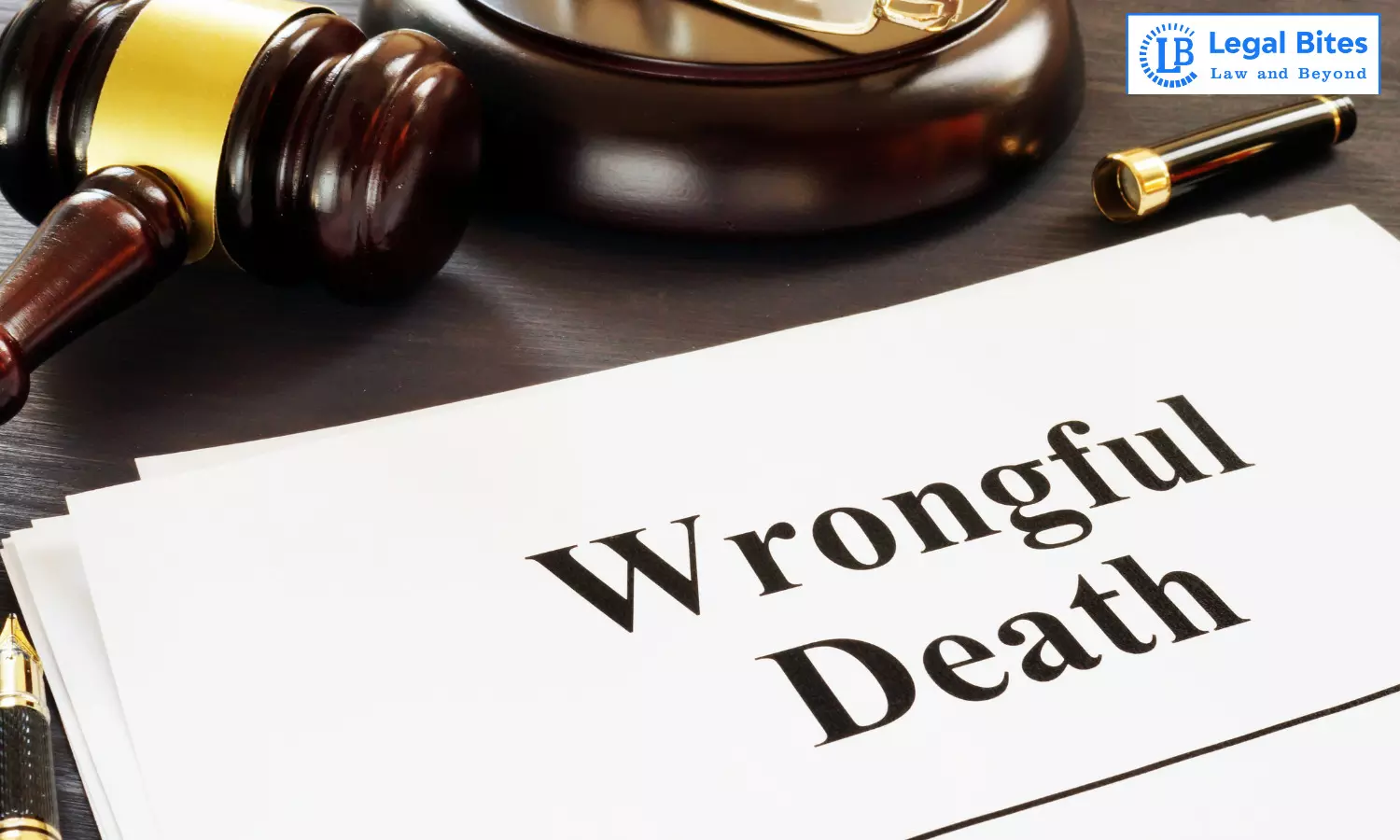4-Point Checklist: Filing a Wrongful Death Lawsuit
The article '4-Point Checklist: Filing a Wrongful Death Lawsuit' contains comprehensive information about wrongful death and key elements of wrongful death.

The article '4-Point Checklist: Filing a Wrongful Death Lawsuit' by Samantha contains comprehensive information about wrongful death and key elements of wrongful death.
You might be concerned about filing a wrongful death lawsuit if a loved one dies in an accident. In general, wrongful death cases are comparable to personal injury claims, except that it's the immediate family or surviving next of kin who processes the filing of a wrongful death claim.
Although the definition of wrongful death is straightforward, wrongful death litigation and claims can take many different forms. When someone dies due to the defendant's carelessness, irresponsibility, or purposeful actions, it is called a wrongful death. Since various factors can point to wrongful death, legal action can also take different forms.
What qualifies as wrongful death?
Suppose you lost an immediate family member such as a partner, parent, or child as a consequence of negligence, preventable accident, or misconduct. In that case, you have the right to file a wrongful death claim to seek compensation for your losses. Those can include lost companionship, lost financial support, and funeral expenditures, among other things.
For a defendant to be proven guilty in a wrongful death lawsuit, the plaintiff must bear the same burden of proof as if the victim were still living. If the deceased person had survived the tragedy and had a legitimate personal injury claim, a qualifying family member could pursue an insurance claim or wrongful death case.
Key Elements of a Wrongful Death
It can be complicated to determine one's rights to compensation in a wrongful death case as it varies per state laws. A competent personal injury lawyer can help you understand the requirements to file a claim for the wrongful death of a loved one, as well as the types and amounts of financial damages that may be recovered.
The following conditions must be met to constitute a wrongful death lawsuit:
- There must have been an act or conduct that caused or contributed to the death.
- The death must have affected the surviving immediate family or next of kin in some way.
- The perpetrator must have a responsibility to avoid death and breach that duty by negligence or because of a wrongful act.
A lawsuit may be filed against either of the following entities:
- The individuals who directly caused or contributed to the death.
- The service provider or the manufacturer of a product that contributed to the cause of death.
- The company for which the deceased worked where the incident happened during work hours.
Depending on your state's statutes, these individuals may be able to receive compensation from wrongful death claims in the following order:
- The surviving spouse of the deceased
- The biological or foster children of the deceased
- The deceased person's grandchildren, in the absence of the parents
- The biological or foster parents of the deceased, if they were fully supported during the year
- The biological or adopted siblings of the deceased, if they lived together in the same house
4 Requirements for Filing a Wrongful Death Lawsuit
Although the types of proof and wrongful death paperwork you'll need to file a claim differ by state laws, several elements are standard requirements for these claims. To successfully file a wrongful death claim, you'll need to prepare and secure essential requirements.
1. Police reports and death certificate
If the death was due to a car accident or involved a premises liability accident, such as a slip and fall, the police may conduct an investigation. To see if your loved one has a case contact slip and fall lawyers for a chance at justice for your loved one's passing.
In such cases, police reports and proof documentation will be necessary. It's in your best interest to get your hands on these wrongful death documents as soon as possible so you can include them when filing a wrongful death lawsuit.
2. Medical records and autopsy reports
You must obtain and protect all copies of your loved one's medical records at all costs if medical negligence or malpractice was involved in the cause of their death. These wrongful death documents may indicate inconsistencies, inaccuracies, or illegality in medical procedures. It's also possible for some information to be omitted or covered up.
Suppose you suspect that a health professional's conduct or actions caused or contributed to the death of your loved one. In that case, you may need to request a comprehensive autopsy to evaluate whether a medical mistake was to blame. Accidental injuries, such as surgical errors, can be confirmed through a thorough body examination. In contrast, toxicology results can determine whether a fatal pharmaceutical error caused or led to your loved one's demise.
3. Evidence of the defendant's relationship with the deceased
A valid negligence or malpractice case must establish the relationship between the defendant and the deceased involving a duty of care. A typical example is a physician delivering medical care to a patient. The former must do everything possible to protect the latter from preventable harm or suffering.
Drivers may also be responsible for wrongful death claims due to car accidents since they have a duty of care toward other drivers and pedestrians. As such, drivers must respect and abide by all traffic rules.
When it comes to premises liability and third-party wrongful death cases, you must ascertain who is responsible for the safety of the premises or the malfunctioning equipment that caused your loved one's death. To obtain the wrongful death paperwork, you may need to get a copy of the contract between a contractor and a landlord to determine which failed to ensure safety.
4. Family records and tax returns
To determine the viability of your wrongful death claim, your lawyer needs to evaluate the financial and emotional impact the death of a loved one will have on your family. If the deceased were the family's breadwinner, their lost earnings would make up a significant amount of the settlement you seek. Some of the wrongful death papers you'll need are employment accruals, contracts, and pay slips.
In addition to financial losses, your family's emotional losses following your loved one's death may also strengthen your claim. In long marriages, a spouse can assert loss of consortium. Children and other dependents might claim the loss of parental care and guidance.
Partner with a Reliable Wrongful Death Lawyer
A wrongful death lawyer can efficiently guide bereaved families in gathering the required documentation and evidence for a wrongful death lawsuit. Working with an attorney can allow a family to focus on healing while the lawyer processes all legal requirements and deadlines.
Important Links
Law Library: Notes and Study Material for LLB, LLM, Judiciary, and Entrance Exams

